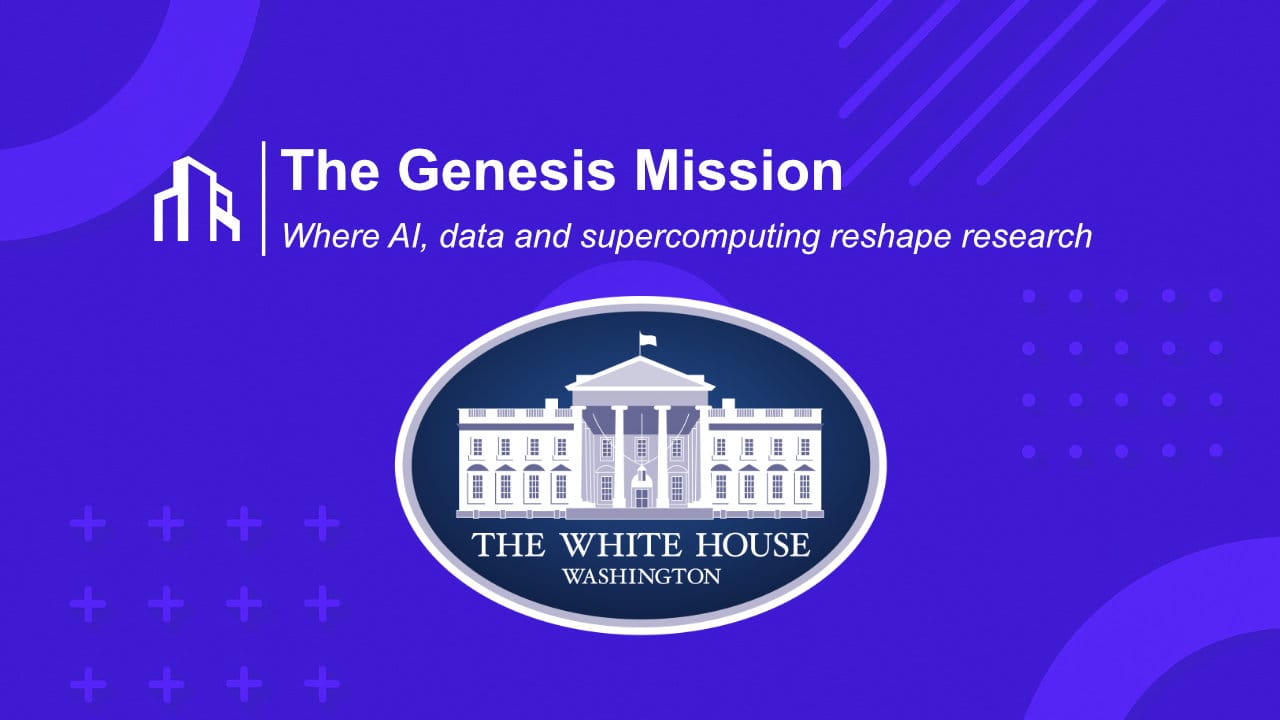The Genesis Mission and the Transformation of Research Through AI, Data and Supercomputing
The Genesis Mission is transforming how scientific research is done by merging AI, large datasets and high performance computing into a faster discovery system.

The Genesis Mission is a large scale research initiative from the United States that brings together supercomputers, artificial intelligence and decades of scientific data. The goal is simple. Make scientific discovery faster and more precise in areas like energy, materials, climate and advanced physics.
It is not a commercial product and not a platform that companies can join. But the work done inside the Genesis Mission will influence the tools, standards and technologies that businesses use in the coming years.
What the Genesis Mission Is
At its core, the Genesis Mission is a national discovery platform. It connects three things that normaal gesproken los van elkaar bestaan.
- High performance computing systems
- Large scientific datasets
- AI models designed for research
By placing these components in one coordinated environment, researchers can run complex simulations, test ideas and analyse results at a pace that was not realistic before.
How the Mission Works in Practice
The mission focuses on scientific fields where traditional research is slow and expensive. Think of fusion energy, nuclear processes, climate modelling and new materials. These areas depend heavily on simulation and long data series.
Researchers use the combined platform to set up experiments in software instead of only in physical labs. AI helps to scan through data, suggest promising directions and reduce the number of dead ends. Supercomputers provide the raw power to run these scenarios repeatedly until patterns become clear.
The result is not magic, but it is faster feedback. That is the real value of the Genesis Mission.
Critical Points and Limitations
There are several important points to keep in mind.
- Access is restricted
The platform is built for federal labs, selected research institutions and specific partners. It is not a public cloud service. - Data governance is strict
The mission uses sensitive and sometimes classified datasets. Security, identity and logging requirements are extremely high. - Funding and politics matter
The program depends on long term budgets and policy continuity. Changes in priorities can slow things down. - No guaranteed breakthroughs
Faster computing and better AI increase the odds of progress, but science remains onzeker. Not every project will produce a headline result.
These factors define the boundaries of what the Genesis Mission realistically can and cannot do.
What This Means for Businesses
Even though companies cannot plug into the Genesis Mission, they will still feel its impact over time.
First, technology vendors will adopt methods and insights that come out of the program. Improved simulation engines, better scientific models and more robust AI workflows will eventually land in commercial software. Businesses that depend on modelling, forecasting or optimisation will benefit from these upgrades without ever touching the Genesis platform itself.
Second, sectors like energy, manufacturing and advanced engineering will see faster innovation cycles. When research into new materials, batteries or energy systems moves quicker, product roadmaps will move more.
Third, the strict data and security practices inside the mission will reinforce expectations in the wider ecosystem.
A Realistic View for Companies
For most organisations the Genesis Mission is something to track, not something to integrate. You cannot buy it, you cannot connect an API and you cannot migrate workloads into it.
What you can do is:
- Follow the outcomes in your sector through research releases and vendor updates
- Invest in your own data foundations and governance so you can adopt new tools quickly
- Treat large public research programs as an early signal for where technology is heading
Conclusion
The Genesis Mission is a powerful research platform that combines AI, supercomputing and scientific data to speed up discovery. It is closed to commercial use, but it will still shape the tools and standards that businesses rely on.
